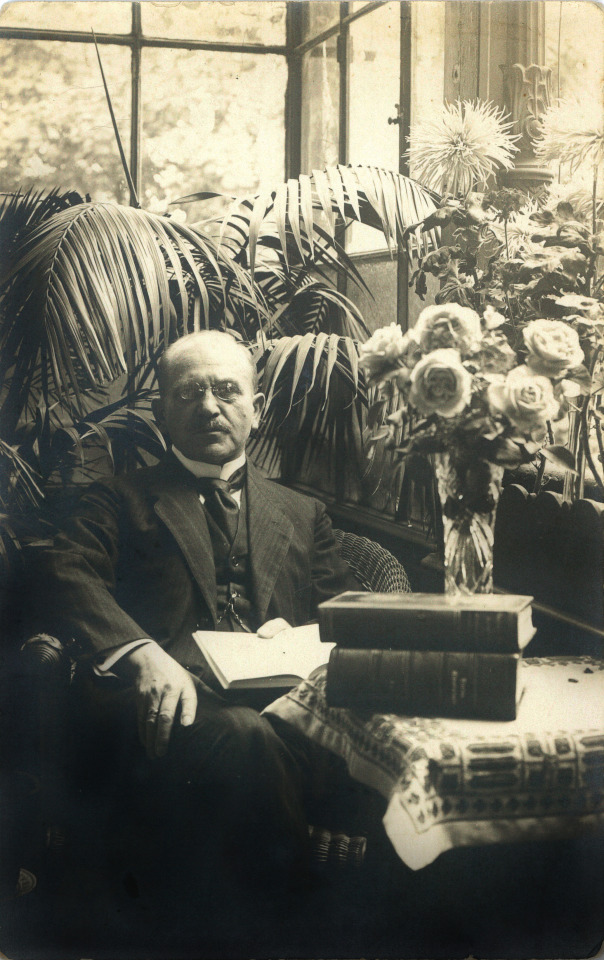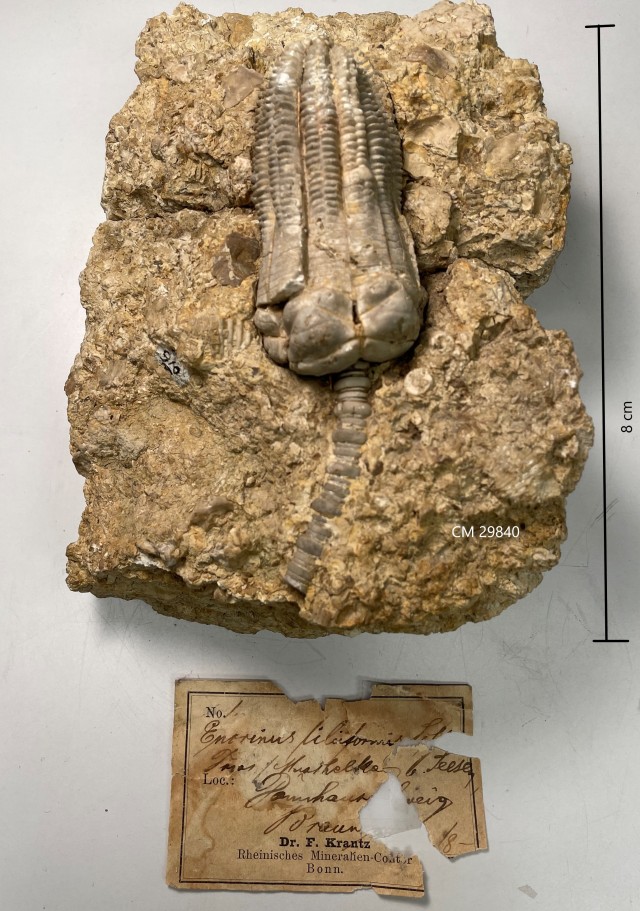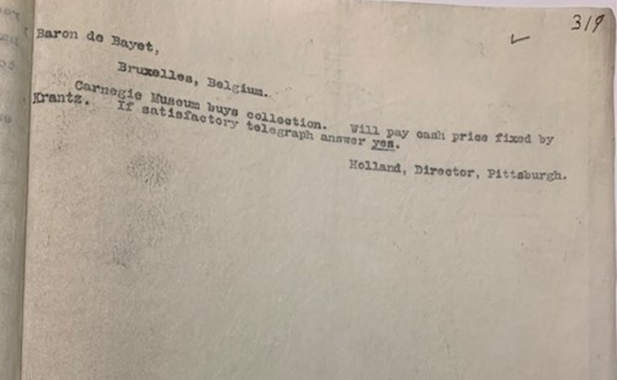by Joann Wilson and Albert Kollar
In June of 1903, William Holland, Director of the Carnegie Museum, seized a rare chance to acquire one of the finest private collections in all of Europe. The purchase was made with sixteen words. Within in Holland’s Archives at the Carnegie Museum of Natural History Library, on onion paper so fragile that it appears to float, is a carbon copy of the telegram that influenced the early history of the Paleontology Department. Mysteriously, only one name appears on this fateful cable, and it is not a name that you would expect. The name is “Krantz,” Dr. Friedrich Krantz of Bonn, Germany.

In 1859, Friedrich Krantz was born into a family that operated a geological supply business. In 1888, Krantz graduated with a PhD in geology from the University of Erlangen. That same year, he joined “Dr. A Krantz,” the company founded by his uncle, Adam August Krantz. By 1891, Friedrich Krantz took charge and changed the company name to “Dr. F. Krantz, Rheinisches Mineraliaen Contor.” The company continues operations to this day out of headquarters in Bonn.
Exactly when Ernest Bayet of Brussels and Friedrich Krantz met is uncertain. But thanks to the letters and fossil lists that arrived with the Bayet collection, we know that they corresponded at least three times. The difficult task of translating these documents into English is being handled by volunteer Lucien Schoenmakers, a resident of the Netherlands. Schoenmakers’ translation work here and with other records is contributing critical information to the Section of Invertebrate Paleontology’s multiyear project to fully document the invertebrate portion of the Bayet Collection.
From the archive, we know that Krantz visited Bayet at least once. On July 7th, 1897, Krantz wrote, “I intend to come to Brussels towards the end of next week and will be honored to visit you, I can use the numbered list to give you the exact individual prices for all the objects displayed by me.”
In fact, Bayet may have selected Krantz to act as his agent for the sale because he was so familiar with it. Krantz sold many museum quality specimens to Bayet; many with distinctive, elegant labels.

The sale of Baron Ernest Bayet’s fossil collection to the Carnegie Museum in 1903, made front page news in the New York Times, and other papers across the country. In a letter to Andrew Carnegie, thanking him for allocating $25,000 for the purchase, an enormous sum for that time, Holland wrote, “We are never likely to have another such chance, and you have done a most splendid thing in securing it [the Bayet Collection] for our Museum of Paleontology.” That most splendid thing transpired, over a century ago, with just sixteen words:
“Carnegie Museum buys collection. Will pay cash price fixed by Krantz. If satisfactory, telegraph answer yes.”

Part 2 of this series highlights spectacular Krantz specimens within the Bayet collection.
Many thanks for the generous contributions of Ursula Müller-Krantz, Executive Director of Dr. F Krantz Rheinisches Mineraliaen Contor GmbH & Co., Marie Corrado, Carnegie Museum of Natural History Library Manager and Kelsea Collins, Carnegie Museum Library Cataloger. Continued gratitude to volunteer Lucien Schoenmakers’ ongoing effort to translate archival Bayet documents. Joann Wilson is an Interpreter in the Education Department at Carnegie Museum of Natural History and Albert Kollar is Collections Manager for the Section of Invertebrate Paleontology. Museum employees are encouraged to blog about their unique experiences and knowledge gained from working at the museum.
Related Content
Hunting for Fossil Frogs in Wyoming
Carnegie Museum of Natural History Blog Citation Information
Blog author: Wilson, Joann; Kollar, AlbertPublication date: September 24, 2021
